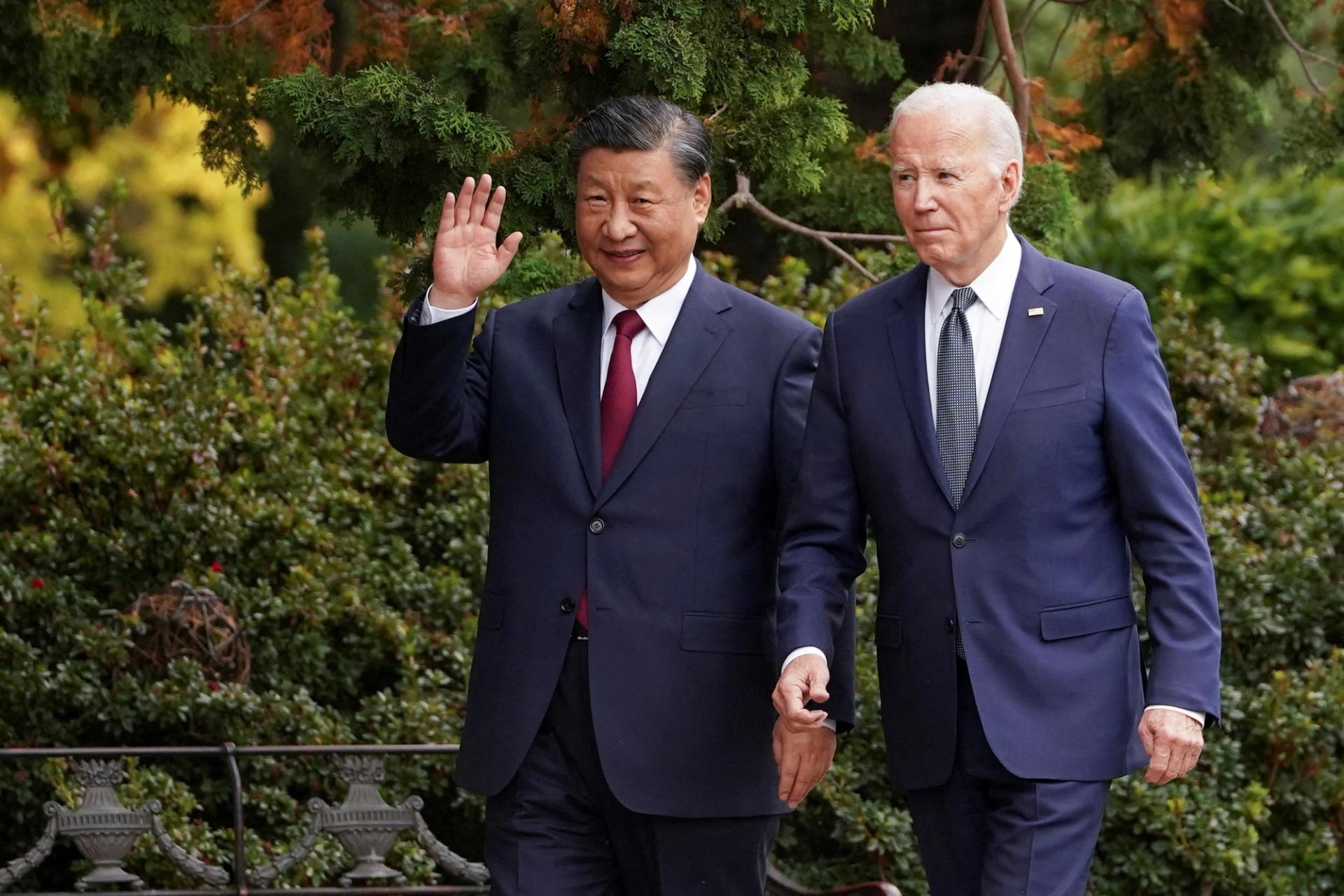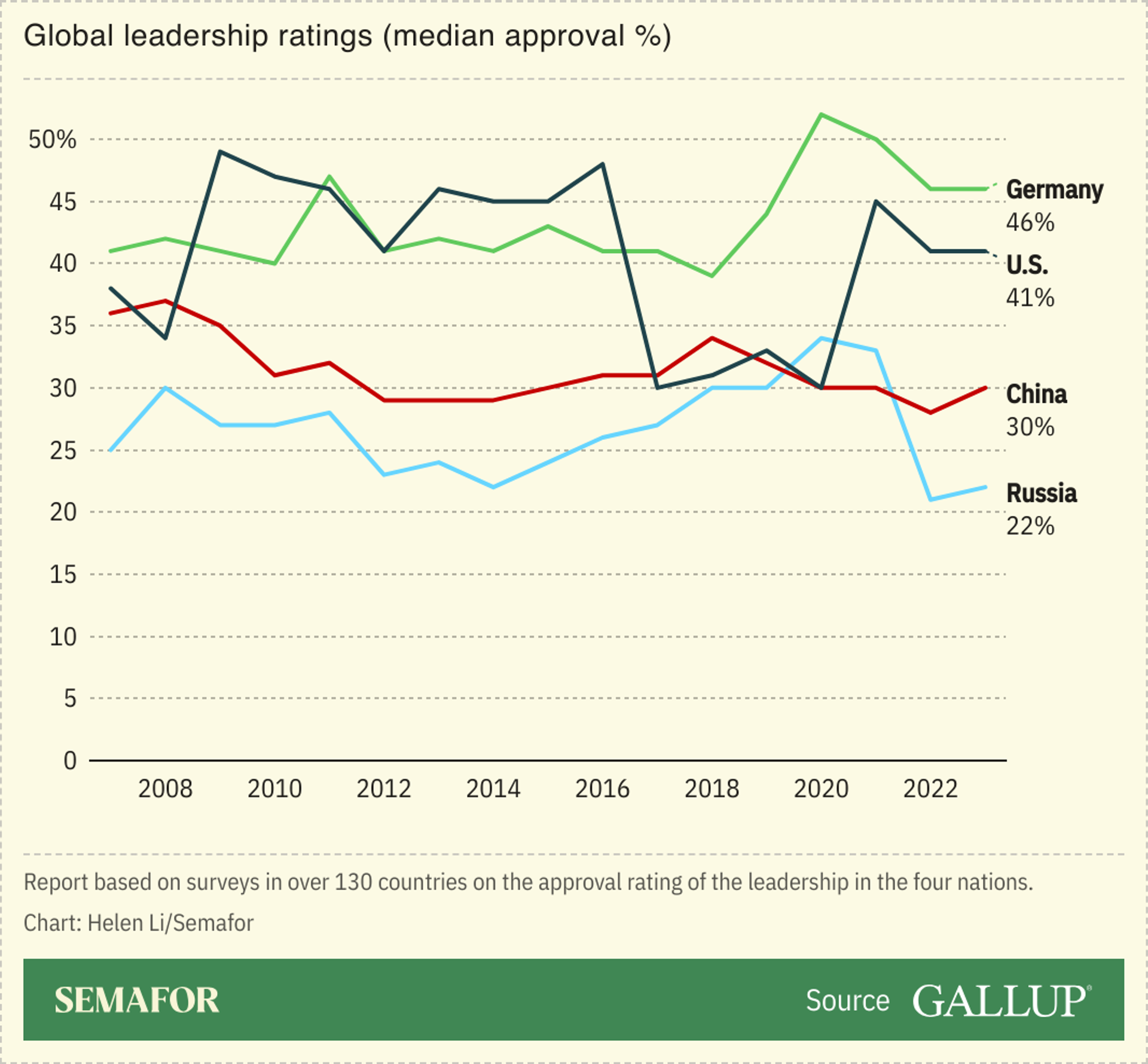Semafor Signals
Supported by
China loses ground in soft-power battle with the US
Insights from Gallup, Foreign Policy, and ISEAS-Yusof Ishak Institute

The News
China is losing ground in its soft-power battle with the US in parts of Asia, according to a new report on how the world perceives the rivals’ leadership. People in India, South Korea, Vietnam, and the Philippines have shifted their allegiances toward the US and away from China over the last 10 years, according to Gallup survey data measuring the approval of the two superpowers’ leadership over time across 130 countries and territories.
The four Asian countries showed a more than a 30-point shift toward the US compared to China over the last decade, while four African nations — Tanzania, Malawi, South Africa, and Uganda — saw equal shifts in the opposite direction, according to Zacc Ritter, a senior researcher at Gallup.

SIGNALS
US acts as ‘counterbalance’ in Asia
The shifts in Asia show how some countries see Washington “as a counterbalance to China,” Gallup senior researcher Zacc Ritter told Semafor. Approval of the US isn’t necessarily increasing, but support for the Chinese government is decreasing as Beijing’s aggression grows along the border with India and in the South China Sea. “These countries perceive a threat, and that’s leading to them falling increasingly into a geopolitical camp that’s toward the US,” Ritter said. China’s influence in the region is still strong, however: In Southeast Asia, a narrow majority of elites prefer to align with China over the US, according to a recent survey of people who inform or influence policy. The Gallup survey, though, polled the general population.
China beats US in Africa for the first time
More people in Africa approved of the Chinese government than the US’ for the first time, the Gallup report found. But many Africans “strongly approve of both countries,” Ritter said: China’s median approval rating on the continent is 58%, compared to 56% for the US. Former President George W. Bush and Barack Obama were uniquely popular in Africa, but “it might have been fleeting, and now it’s going back to something that’s more of an even-split parity between the two camps,” Ritter said. Both China and the US have poured billions in investment into Africa, in a bid to compete for influence.
US could make cultural soft-power gains with new shows
Two new hit shows centered around Asia could birth a new form of US soft power, Foreign Policy columnist Howard French opined. Shōgun, a fictionalized epic set in 1600s Japan, and 3 Body Problem, a sci-fi series based on a Chinese trilogy, are remarkable for their ability to “preserve period details and linguistic authenticity,” French wrote: Shōgun showcases Japanese actors and writers, while 3 Body Problem opens with a dramatization of China’s Cultural Revolution. Both undermine the notion that US viewers “have little appetite for content with subtitles,” French wrote. “There are new audiences to be won on every continent with authentically told stories about dramatic periods in history that have little or no need for Westerners front and center.”
